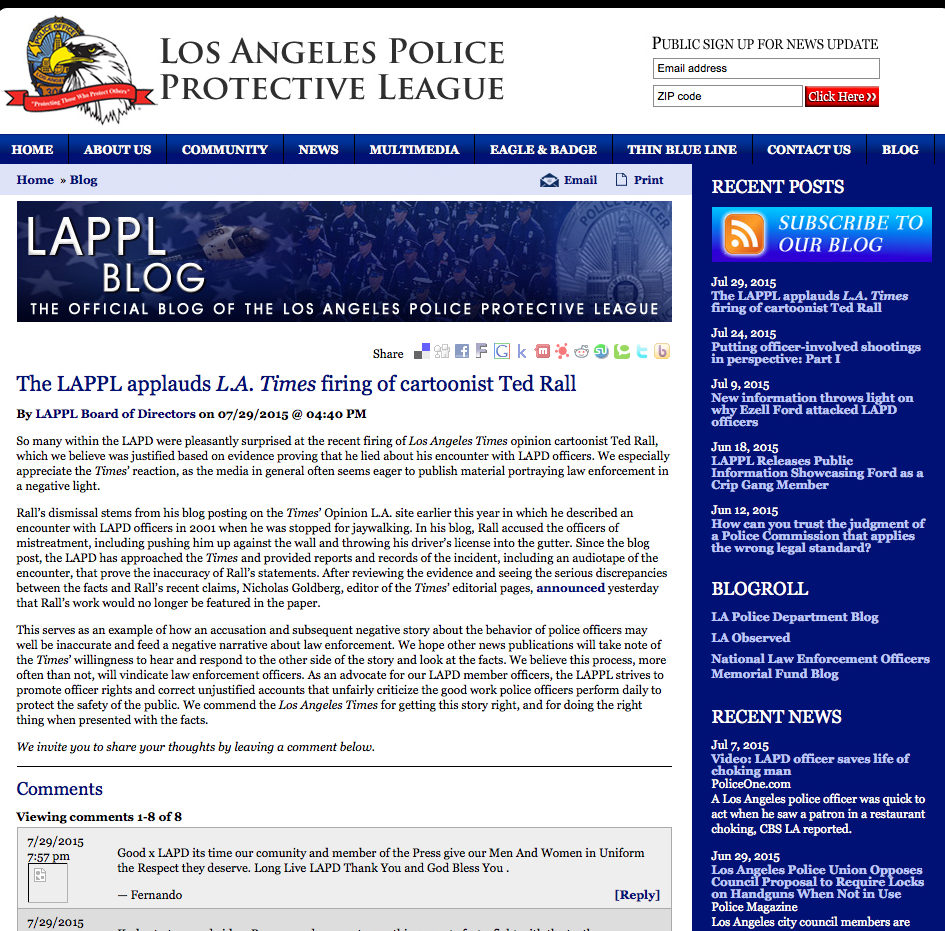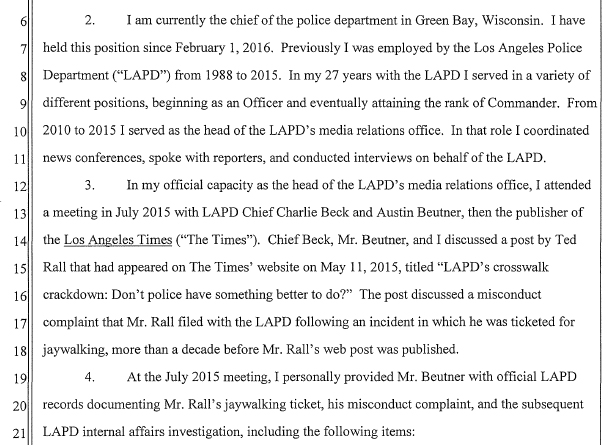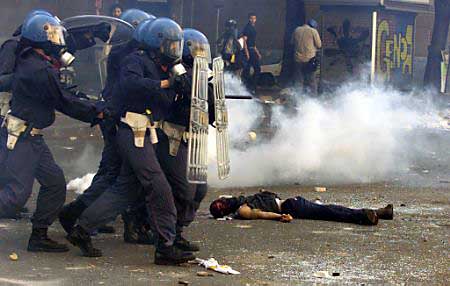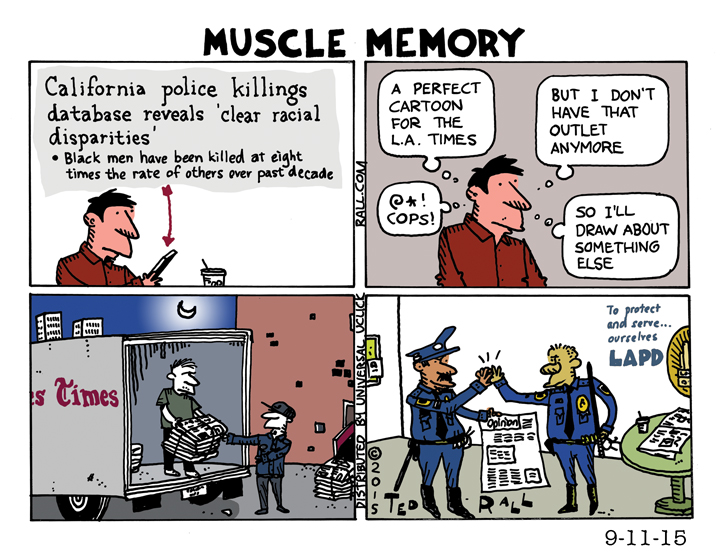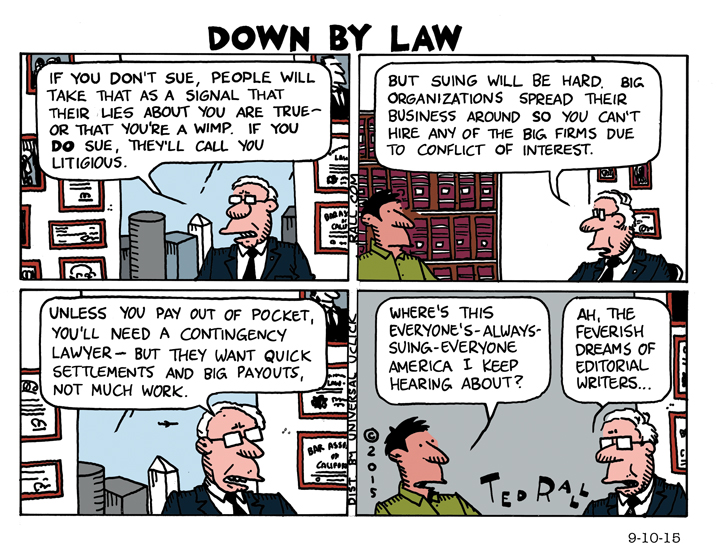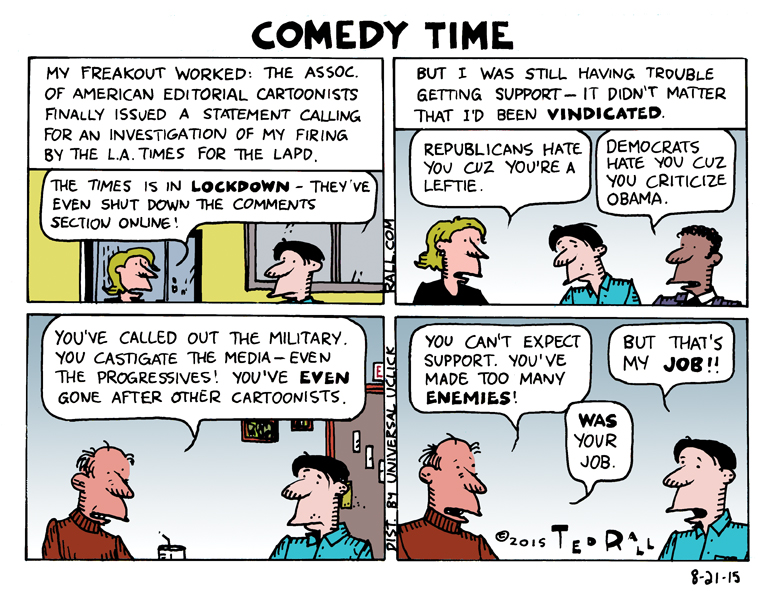On June 5th you issued a statement acknowledging the role your newspaper has played in the racist oppression of people of color. “The Los Angeles Times has a long, well-documented history of fueling the racism and cruelty that accompanied our city’s becoming a metropolis,” you wrote. You promised reforms, including “addressing the concerns of people of color in the newsroom.”
You admitted that this is merely a start and asked for suggestions for how the Times can redeem itself and earn the trust of readers, especially people of color.
I will take you at your word.
To begin with, the Times should come clean about its longstanding, cozy relationship with the LAPD. And it should end this deep conflict of interest, which makes it impossible for your paper to report objectively about the police. When the media fails to hold the police accountable they are free to abuse the citizens they are supposed to protect.
My case shines a light on how the media censors critics and breeds self-censorship by journalists. I was the Times’ editorial cartoonist from 2009 to 2015. My cartoons often criticized police brutality and racist policing. Instead of stopping their abuse of minorities, however, the police repeatedly demanded that the papers that ran my cartoons fire me. Those requests fell on deaf ears until 2014, when the Times brought in a new publisher, Austin Beutner. Beutner, a hedge fund billionaire who is now superintendent of LA schools, midwifed a deal by which the $16.4 billion LAPD pension fund purchased #1 shareholder status in Tribune Publishing, which owned the Times and 14 other newspapers. (Yes, it’s legal for the cops to buy media companies.) Sealing the deal and in violation of the Times’ ethical guidelines, the LAPD police union gave an award to Beutner.
The LAPD police union has a history of buying newspaper stock. They don’t hide their motives. They seek to remove negative coverage of the police from “their” papers. “Since the very public employees they continually criticize are now their owners, we strongly believe that those who currently run the editorial pages should be replaced,” the union’s president explained in 2009, after it acquired interest in the San Diego Union-Tribune.
Months after the LAPD-LA Times deal, then-LAPD police chief Charlie Beck arranged a secret meeting at Beutner’s office. Fire your cartoonist, Beck demanded. Beutner agreed.
But firing me was not enough for Beck. The LAPD also wanted to send a chilling message to journalists throughout the Southland: if you criticize the police, we will destroy you. So the Times published a smear job about me.
The Times’ article didn’t mention the meeting between Beck and Beutner. It didn’t talk about the LAPD pension fund’s ownership of the Times. To this day, those facts have never been revealed to Times readers. The piece relied upon faked evidence provided by Beck to characterize me as a liar (in a blog about jaywalking, of all things). I proved the evidence was bogus and that I had been truthful, yet editorial page editor Nick Goldberg—under orders from Beutner—ignored it.
Goldberg later admitted that the truth didn’t matter. The Times was determined to ruin me and didn’t care that I had done nothing wrong. Inexplicably, Goldberg still works at the Times.
My case is not just about me. It opens a window into why and how the Times’ relationship with the police corrupts its commentary and coverage.
It shows why and how victims of police brutality have been ignored or diminished.
It explains why and how police narratives are taken at face value, no matter how ridiculous. While I was being given the bum’s rush, reporter Paul Pringle, assigned to be the Times’ hatchet man, told me that he had verified that the bogus LAPD materials were authentic. How? I asked. “The LAPD told me,” he said. I laughed. He was serious, though. Pringle still works at the Times too. He recently won a Pulitzer Prize.
How can anyone read about what happened to me and still believe anything the Times has to say about cops?
Mr. Pearlstine, if this is not empty talk, if you are serious about turning over a new leaf, you should address my case. Hiring more people of color in the newsroom is overdue, important and necessary. But black reporters aren’t more likely than white journalists to go after the police if they’re equally afraid of getting fired. Everyone at the Times knows what the paper did to me; they know it can happen to them too if they go “too far” against the cops.
The LAPD got rid of their most irritating critic and a pundit who made going after police brutality a priority. The Times never replaced me.
The LAPD terrorized other journalists. They won.
Rehiring me would make a powerful symbolic statement that the Beutner era of corruption and complicity with the police is finished. It would demonstrate you do not edit a police propaganda rag. You could take down the two libel-filled articles about me that are still on your website. You could issue a retraction and an apology.
The LAPD has since divested itself of its Tribune stock. The Times’ current owner, Dr. Pat Soon-Shiong, should pledge not to enter into financial partnerships with law enforcement agencies.
Like many other papers, the Times relies on the police to tip off reporters about breaking local news. This relationship should be severed. Reporters ought not socialize with cops, much less rely upon them for stories. Refusing to be a police lapdog requires hiring more journalists—but Soon-Shiong is a biotech billionaire. He can easily afford them.
Thank you for taking the time to read this. I look forward to hearing from you.
Very truly yours,
Ted Rall
(Ted Rall (Twitter: @tedrall), the political cartoonist, columnist and graphic novelist, is the author of the biography “Bernie,” updated and expanded for 2020. You can support Ted’s hard-hitting political cartoons and columns and see his work first by sponsoring his work on Patreon.)

